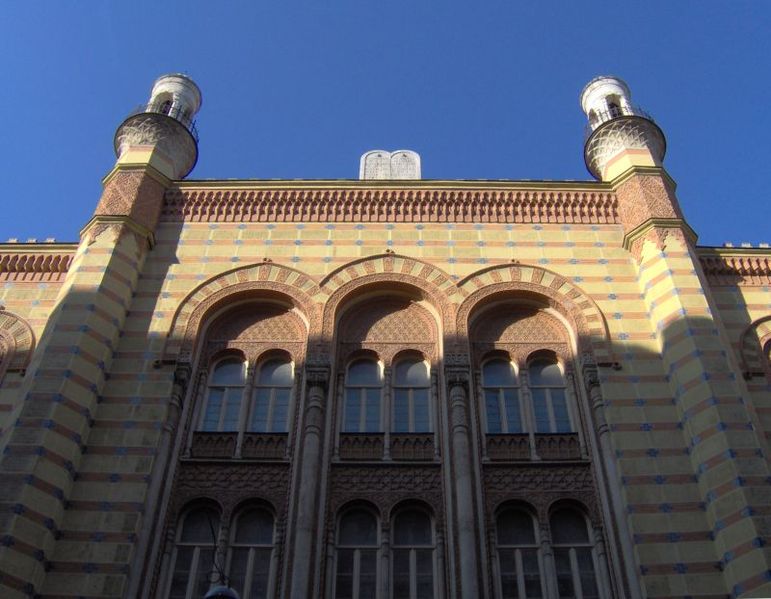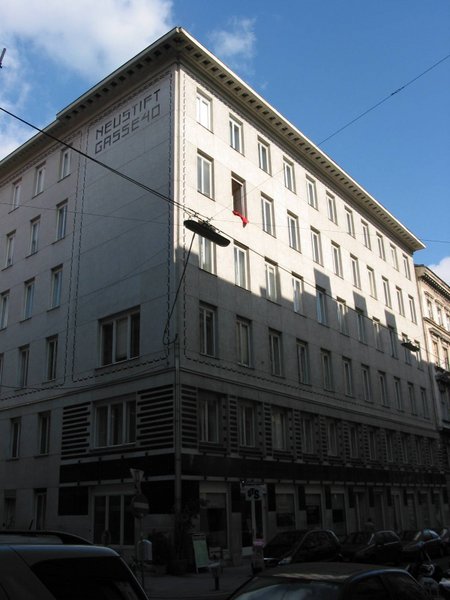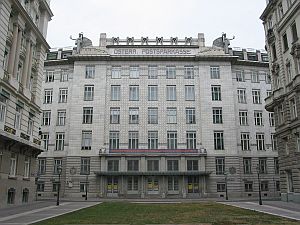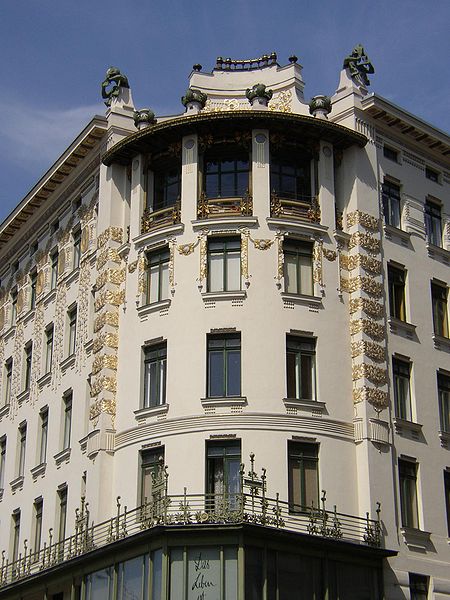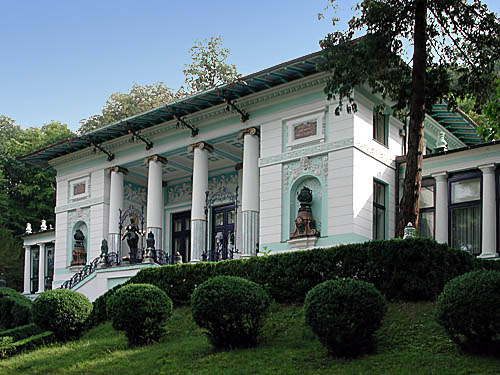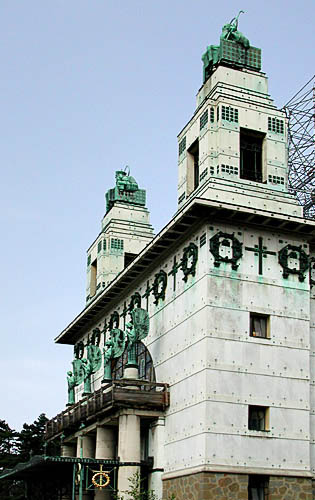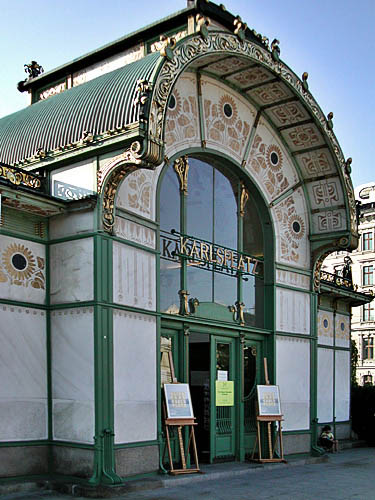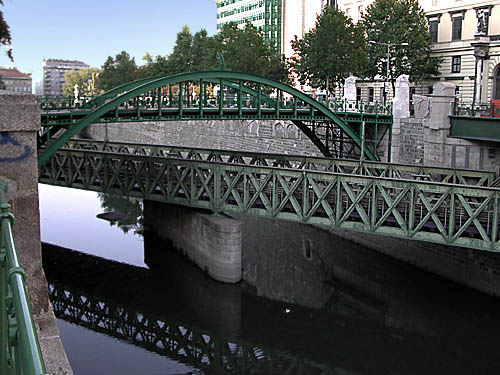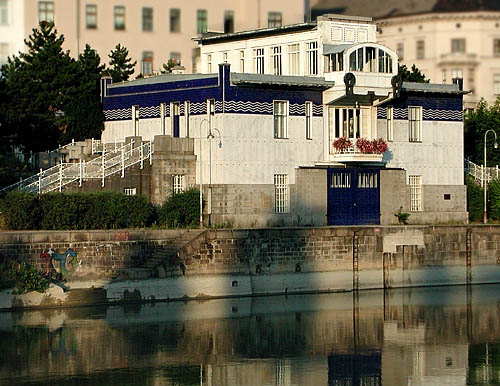<Back to Index>
- Chemist Stanislao Cannizzaro, 1826
- Architect Otto Koloman Wagner, 1841
- Consul/Dictator of the Roman Republic Gaius Julius Caesar, 100 B.C.
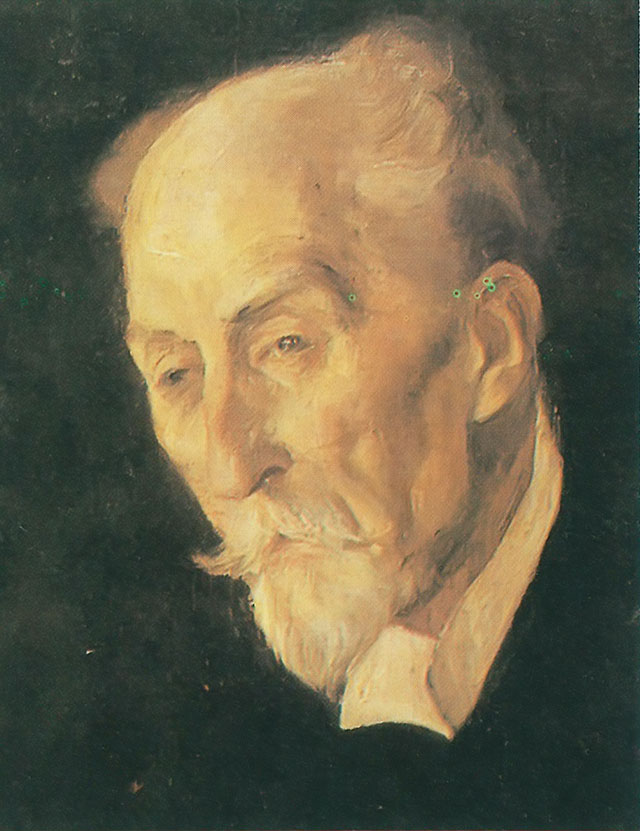
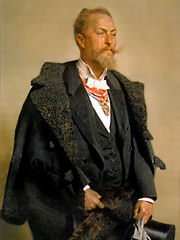
Otto Koloman Wagner (13 July 1841 – 11 April 1918) was an Austrian architect.
Wagner was born in Penzing, a district in Vienna. He studied in Berlin and Vienna. In 1864, he started designing his first buildings in the historicist style. In the mid- and late-1880s, like many of his contemporaries in Germany (such as Constantin Lipsius, Richard Streiter and Georg Heuser), Switzerland (Hans Auer and Alfred Friedrich Bluntschli) and France (Paul Sédille), Wagner became a proponent of Architectural Realism. It was a theoretical position that enabled him to mitigate the reliance on historical forms. In 1894, when he became Professor of Architecture at the Academy of Fine Arts Vienna, he was well advanced on his path toward a more radical opposition to the prevailing currents of historicist architecture.
By the mid-1890s, he had already designed several Jugendstil buildings. Wagner was very interested in urban planning — in 1890 he designed a new city plan for Vienna, but only his urban rail network, the Stadtbahn, was built. In 1896 he published a textbook entitled Modern Architecture in which he expressed his ideas about the role of the architect; it was based on the text of his 1894 inaugural lecture to the Academy. His style incorporated the use of new materials and new forms to reflect the fact that society itself was changing. In his textbook, he stated that "new human tasks and views called for a change or reconstitution of existing forms". In pursuit of this ideal, he designed and built structures that reflected their intended function, such as the austere Neustiftgasse apartment block in Vienna.
In 1897, Otto Wagner, Gustav Klimt, Joseph Maria Olbrich, Josef Hoffmann and Koloman Moser founded the "Vienna Secession" artistic group. From the ideas of this group he developed a style that included quasi-symbolic references to the new forms of modernity.
Wagner died in Vienna in 1918.
